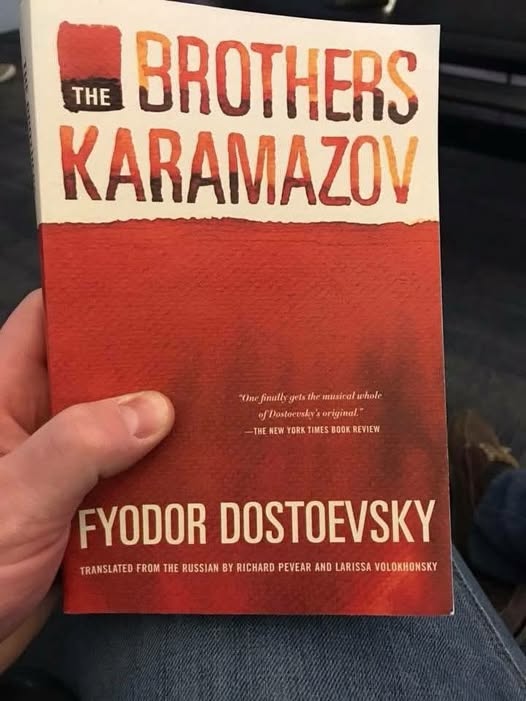The Brothers Karamazov is Fyodor Dostoevsky’s final and arguably greatest novel—a profound exploration of faith, free will, morality, and the human soul. First published in 1880, the novel is a philosophical and psychological epic that delves into the struggles between reason and belief, love and hatred, and guilt and redemption.
At the heart of the novel is the complex Karamazov family, particularly the three brothers—Dmitri, Ivan, and Alyosha—each representing different aspects of human nature. Dmitri is passionate and impulsive, Ivan is intellectual and skeptical, while Alyosha embodies spiritual purity and compassion. Their conflicting worldviews create a powerful tension that drives the narrative forward.
Dostoevsky uses the structure of a murder mystery—the patricide of their father, Fyodor Pavlovich Karamazov—not merely as a plot device, but as a vehicle to examine existential and moral questions. Who is guilty? Who is responsible? These questions go beyond the legal trial and probe into the deeper layers of conscience, responsibility, and faith.
One of the most compelling chapters in the novel is “The Grand Inquisitor,” in which Ivan presents a parable that critiques organized religion and the human longing for certainty over freedom. This chapter alone cements Dostoevsky’s reputation as one of literature’s most profound thinkers. It shows the internal conflict between belief and doubt, a struggle that permeates the novel.
Alyosha, the youngest brother, emerges as the spiritual center of the novel. Inspired by the real-life Orthodox monk Tikhon, Alyosha’s journey suggests that despite the darkness and suffering in the world, love and faith remain possible. Dostoevsky doesn’t present easy answers but offers a vision of redemption through humility and compassion.
The novel is dense and challenging, rich with philosophical dialogue, theological debate, and psychological depth. Yet it rewards the reader with its emotional intensity and intellectual insight. Dostoevsky’s understanding of the human psyche is unmatched, and his characters are as vivid and conflicted as any in world literature.
In conclusion, The Brothers Karamazov is more than just a novel; it is a spiritual and intellectual journey. It confronts the reader with some of life’s most fundamental questions and leaves a lasting impact through its emotional honesty and philosophical depth. It remains one of the most important works in world literature—a masterpiece of moral and metaphysical inquiry.


